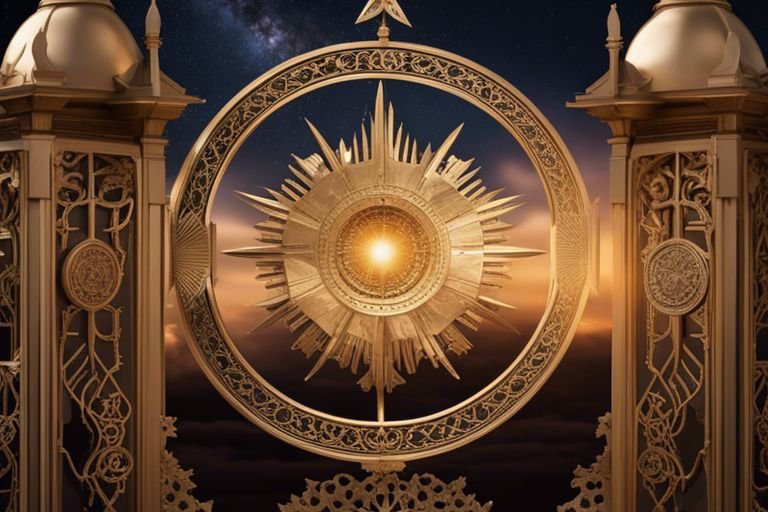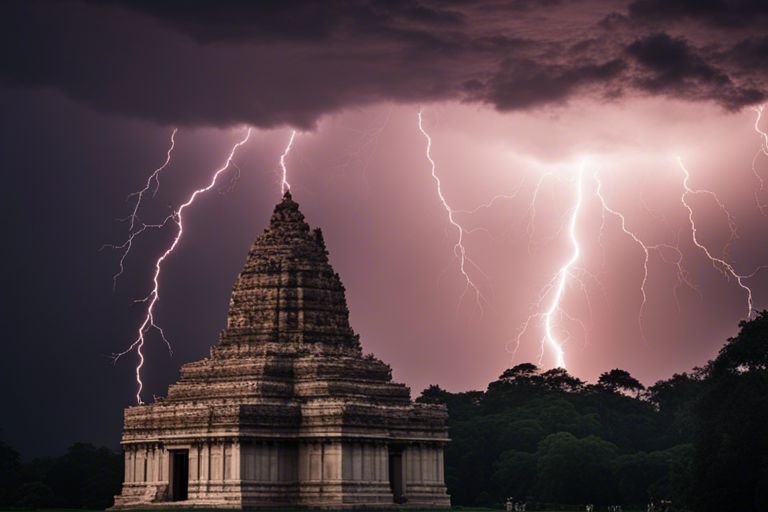Amidst the multitude of faiths and beliefs that exist across the world, the question of whether all religions lead to the same heaven is a topic of great interest and debate. In this comprehensive guide, I will provide you with insights into the diverse perspectives on the afterlife as depicted in major world religions including Christianity, Islam, Hinduism, Buddhism, and more. By delving into the differences and similarities among these belief systems, I will help you gain a broader understanding of the varied concepts of heaven and afterlife and how they are interpreted by different religious traditions. Whether you are seeking clarity on your own beliefs or simply looking to explore other worldviews, this guide will offer you a valuable glimpse into the fascinating realm of afterlife across faiths.
Key Takeaways:
- Afterlife beliefs vary: Different religions have varying beliefs about the afterlife, including the concept of heaven or an equivalent divine afterlife destination.
- Exclusive versus inclusive views: Some religions believe in an exclusive afterlife, where only followers of that particular faith can attain it, while others believe in a more inclusive afterlife that accommodates diverse paths to spiritual fulfillment.
- Interfaith dialogue and understanding: Exploring different perspectives on the afterlife can foster interfaith dialogue and greater understanding between religious communities.
- Emphasis on moral conduct: Many religions emphasize the importance of leading a morally upright life as a prerequisite for a positive afterlife outcome, regardless of specific beliefs about heaven or the afterlife.
- Respect for diverse beliefs: Discussing the afterlife across faiths highlights the importance of respecting and understanding diverse religious beliefs, even when they differ from our own.
Perspectives on Afterlife Across Faiths
A fundamental question that has perplexed humanity for centuries is what happens after we die. The answer to this question varies greatly across religious traditions, each offering its own unique insights into the afterlife. In this chapter, I will explore the perspectives on the afterlife across major world religions, shedding light on the diverse beliefs that exist and how they impact the understanding of the afterlife.
Christianity
In Christianity, the concept of afterlife is centered around the belief in heaven and hell. According to Christian teachings, those who accept Jesus Christ as their savior and lead a righteous life will ascend to heaven, where they will experience eternal joy and peace in the presence of God. Conversely, those who reject Christ and lead a sinful life will be condemned to hell, where they will suffer for eternity. The belief in the final judgment and the promise of eternal life in heaven for the faithful is a central tenet of Christian faith.
Islam
In Islam, the afterlife is a significant part of the faith, with a strong emphasis on accountability and judgment. According to Islamic teachings, individuals will be judged based on their actions in life, and their final destination will be either paradise (Jannah) or hell (Jahannam). Paradise is described as a place of exquisite beauty and bliss, where the righteous will be rewarded with eternal joy and fulfillment. Conversely, hell is depicted as a place of punishment and torment for those who have led sinful lives. The belief in the afterlife serves as a powerful motivator for Muslims to adhere to the teachings of Islam and lead a virtuous life in anticipation of the rewards of the hereafter.
Hinduism
In Hinduism, the concept of the afterlife is deeply intertwined with the belief in reincarnation. Hindus believe in the cycle of birth, death, and rebirth, known as samsara, and the ultimate goal is to break free from this cycle and achieve moksha, or liberation from the cycle of rebirth. The afterlife in Hinduism is shaped by the law of karma, where individuals are believed to reap the consequences of their actions in this life in future incarnations. The idea of multiple lives and the opportunity for spiritual growth across lifetimes is a central aspect of the Hindu understanding of the afterlife.
Buddhism
In Buddhism, the concept of the afterlife is rooted in the belief in reincarnation and the cycle of suffering. Buddhists strive to attain enlightenment and reach a state of nirvana, where they can escape from the cycle of birth and rebirth. The afterlife in Buddhism is characterized by the notion of karma and the consequences of one’s actions, which shape the conditions of future existences. The ultimate goal is to transcend the cycle of suffering and achieve liberation from the cycle of birth and death, attaining a state of eternal peace and freedom from suffering.
Judaism
In Judaism, the afterlife is a complex and multifaceted concept, with diverse interpretations among different Jewish traditions. While the belief in an afterlife is not as prominently featured in Judaism as in some other religions, there are varying beliefs about what happens after death. Some Jewish teachings emphasize the idea of Olam Haba, the world to come, where the righteous are rewarded with eternal life in the presence of God. Others focus on the concept of Sheol, a shadowy underworld where the souls of the deceased await final judgment. The afterlife in Judaism is a topic of deep contemplation and spiritual inquiry, with a rich tapestry of beliefs and interpretations.
Through exploring these perspectives on the afterlife across different faiths, it becomes evident that while there are divergent beliefs, there are also common themes that underscore the human yearning for understanding and meaning in the face of the unknown. Understanding these diverse perspectives can enrich our own spiritual journey and foster greater empathy and respect for the beliefs of others.
Do All Religions Go to the Same Heaven?
Afterlife beliefs vary across different religions, raising the question of whether all religions ultimately lead to the same heaven. This topic has been a subject of debate, discussion, and philosophical inquiry for centuries. In this chapter, I will explore different perspectives on the afterlife from various religious traditions and consider if they ultimately lead to the same destination or if there are fundamental differences in their beliefs.
Arguments for Similarities
Some argue that all religions lead to the same heaven, as they teach similar values such as love, compassion, and kindness. Proponents of this view believe that the core teachings of different religions ultimately point towards the same higher power or ultimate truth. They emphasize the common threads of morality and spirituality that run through diverse religious traditions, suggesting that they all ultimately lead to the same heavenly destination.
Arguments for Differences
On the other hand, there are those who argue that each religion has its own unique understanding of the afterlife. They point to the distinct theological beliefs, rituals, and practices within each faith as evidence that their conceptions of heaven and the afterlife are fundamentally different. Some believe that salvation or the afterlife is only attainable through specific beliefs or practices unique to each religion, leading to different heavenly outcomes for followers of different faiths.
Reconciliation of Beliefs
As I explore these different perspectives, I believe it is important to consider the potential for the reconciliation of beliefs about the afterlife across different religions. While there are undoubtedly differences in the specifics of afterlife beliefs, there may also be common ground that allows for mutual respect and understanding. Engaging in interfaith dialogue and seeking to understand the perspectives of others can be a powerful way to bridge the gap between differing beliefs about the afterlife.
In summary, the question of whether all religions lead to the same heaven is a complex and nuanced one. While there are valid arguments for both similarities and differences in afterlife beliefs, it is important to approach this topic with an open mind and a willingness to engage in respectful dialogue with those of differing faith traditions.
Understanding Afterlife: Different Views
Not all religions have the same understanding of what happens after death. Different faiths have varying views on the afterlife, encompassing concepts such as heaven and hell, reincarnation, nirvana, and resurrection. Understanding these different perspectives can shed light on the diversity of religious beliefs around the world.
Heaven and Hell
For many religions, the concept of heaven and hell represents the ultimate destinations for the soul after death. In these beliefs, heaven is often depicted as a place of eternal bliss and reward for those who have lived righteous lives, while hell is portrayed as a realm of eternal punishment for those who have committed grave sins or denied the teachings of the faith.
Reincarnation
Reincarnation is a belief found in several Eastern religions, such as Hinduism and Buddhism. According to this view, the soul continues to be reborn into new bodies, experiencing different lives and circumstances based on the accumulation of karma from previous existences. The ultimate goal is to achieve liberation from the cycle of birth and death.
Nirvana
In Buddhism, the concept of nirvana represents the state of ultimate enlightenment and liberation from suffering. Achieving nirvana involves transcending desires and attachments to the material world, leading to a state of peace and freedom from the cycle of rebirth.
Resurrection
In Christianity, the belief in resurrection centers around the idea of a bodily resurrection at the end of time, where the souls of the departed will be reunited with their physical bodies. This event is associated with the final judgment, where individuals will be assigned to either heaven or hell based on their faith and actions in life.
To wrap up
I hope this discussion has shed some light on the varying perspectives of afterlife across different faiths. While each religion may have its own beliefs and interpretations of the afterlife, it is important to recognize and respect the diversity of views. Ultimately, it is up to each individual to explore and understand their own beliefs about the afterlife and what it means for them. Whether or not all religions go to the same heaven is a question that may remain unanswered, but it is the journey of exploring and understanding these beliefs that can ultimately lead to a deeper understanding and tolerance of others’ perspectives on the afterlife.
FAQ
Q: Do all religions believe in the same concept of heaven?
A: No, different religions have varying beliefs about the afterlife, including the concept of heaven. These beliefs are shaped by the teachings and traditions of each specific faith.
Q: What does Christianity say about who goes to heaven?
A: In Christianity, it is believed that only those who accept Jesus Christ as their savior and follow his teachings will go to heaven. This concept is central to the Christian faith and is based on passages in the Bible.
Q: How does Islam view the concept of heaven?
A: In Islam, paradise is described as a place of bliss and reward for those who have lived according to the teachings of the Quran and the example of the Prophet Muhammad. It is believed that only followers of Islam who have lived a righteous life will enter heaven.
Q: What about other religions, such as Buddhism and Hinduism?
A: Buddhism teaches the concept of Nirvana, which is the ultimate state of enlightenment and liberation from the cycle of birth and death. In Hinduism, the belief in reincarnation and the law of karma influence one’s eventual destination in the afterlife.
Q: Is there any common ground among religions regarding the afterlife and heaven?
A: While there are differences in beliefs about heaven and the afterlife, many religions share common moral principles and virtues that are believed to lead to a positive afterlife. These include compassion, kindness, and living a virtuous life, which are valued across various faith traditions.











